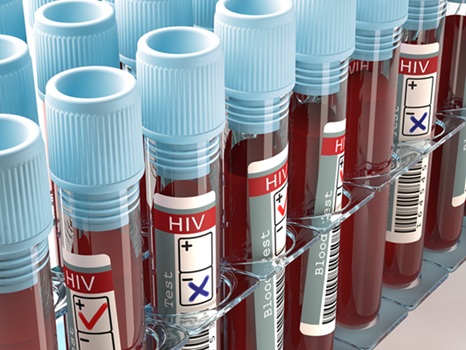Novel Point-of-Care Technology Delivers Accurate HIV Results in Minutes
Posted on 08 Apr 2025
HIV diagnostic methods have traditionally relied on detecting HIV-specific antibodies, which typically appear weeks after infection. This delayed detection has hindered early diagnosis, complicating patient care and HIV prevention strategies. Newer tests that identify both HIV antibodies and the p24 antigen (an early marker of HIV infection) have become the gold standard, but they still require clinical labs to process results. This contributes to longer wait times, increased costs, and multiple patient visits. Now, a novel technology promises to create a rapid point-of-care HIV test that could rival traditional lab-based tests, delivering results much faster without the stressful wait associated with lab confirmations.
Developed by researchers at Northwestern University (Evanston, IL, USA), this technology uses a nanomechanical platform with tiny cantilevers to detect multiple HIV antigens at high sensitivity in just minutes. Starting with pure p24 antigen samples, the team applied antibody layers to each "finger" of a gold-coated microcantilever. This allowed them to measure how strongly p24 bonded to the surface, causing the cantilever to bend by a measurable amount. After confirming the concept, the team tested the sensor with human blood samples, which are more complex than purified samples. The sensor only bent in the presence of p24, proving its specificity. To further broaden its application, the team added two different antibodies to different cantilever fingers, ensuring coverage across all HIV subtypes. Even at low concentrations, the test accurately detected HIV-specific antigens.

These silicon cantilevers are cost-effective, easy to mass-produce, and can be outfitted with a digital readout. When incorporated into a solar-powered device, this technology, detailed in a study published in Biosensors and Bioelectronics, could be deployed in remote regions where early detection is challenging, providing swift interventions without the need for lab-based processing. After successfully testing for SARS-CoV-2, which causes COVID-19, the team is confident that the biosensor will also be effective for detecting additional diseases. Looking ahead, they aim to develop a point-of-care test that simultaneously detects HIV, hepatitis B, and hepatitis C antigens, addressing the common co-infection of hepatitis in people with HIV, which can lead to severe liver complications if untreated. The team also envisions expanding the technology to diagnose measles, an infection in urgent need of point-of-care diagnostic solutions.
“We hope this technology will lead to the development of new point-of-care diagnostics for HIV to improve patient health and help bring an end to this epidemic,” said Judd F. Hultquist, Northwestern virologist and co-author of the study.













